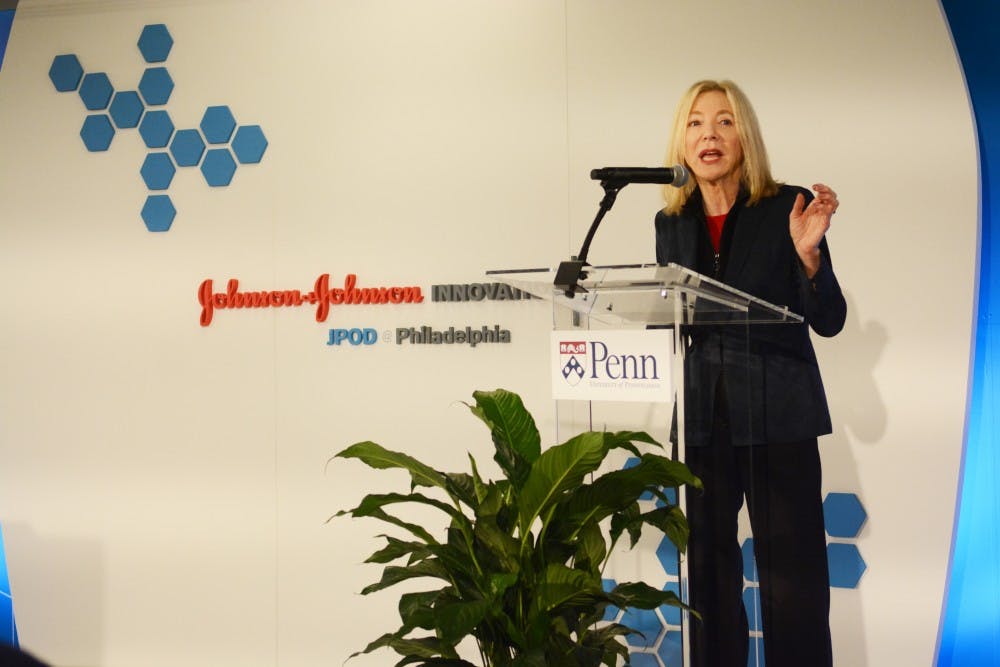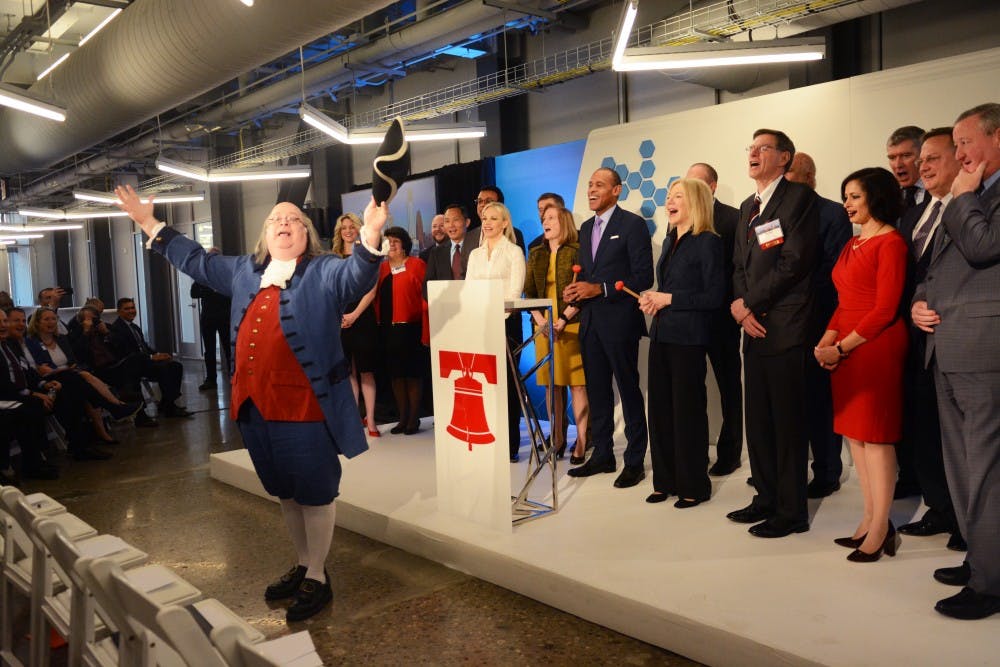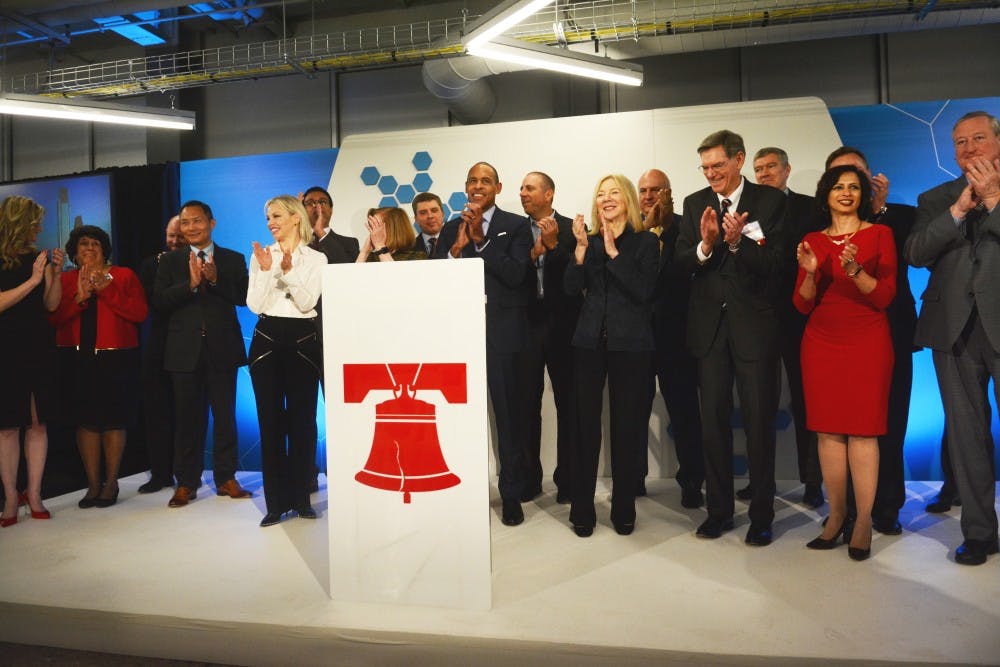
On Thursday, Penn President Amy Gutmann and Philadelphia Mayor Jim Kenney welcomed a "virtual networking pod" at the Pennovation Center.
Johnson & Johnson has opened an innovation accelerator center, where J&J’s health technology startups can develop new products right at Penn. This JPOD, part of the company's JLABS network, is the first of its kind in the United States.
At the pod, JLABS entrepreneurs can video conference with other J&J groups. With ambitions of bringing technology such as artificial intelligence and blockchain into healthcare, J&J hopes that these innovations will shake up the business, FierceBiotech reported.

The Pennovation Center already had a large proportion of the needed resources to start the program, making it ideal for a JLAB in Philadelphia.
“They already have the lab space — which JLABS normally provides — but they were very keen to partner with us on the additional things that are a part of being in JLABS, which is the mentoring, the investing hub, and the programming," Kate Merton, who leads the JLABS along the Eastern Seaboard, told FierceBiotech.
The Pennovation Center opened in October 2016 and has since been a space where scientific ideas become entrepreneurial ventures.
“We’re using it to provide resources from J&J to health technologists, and I think J&J is humble enough to know that we're going to get to learn from those entrepreneurs as well,” Merton told FierceBiotech.

Just last month, Penn was ranked the fourth most innovative university in the world by Reuters, behind only Stanford University, Massachusetts Institute of Technology, and Harvard University. In 2013, Gutmann updated the Penn Compact 2020, a statement of the university’s priorities, to specifically include innovation.
Along with the Pennovation Center and the University’s resources, another factor that could have drawn J&J to Philadelphia is the city’s startup culture. Forbes recently ranked Philadelphia as the eighth best city for startups in the United States. This ranking was based on the city’s convenient location near Washington, New York, and Boston, as well as its more affordable cost of living and the fact that it has the second largest university population in the country.
“This new regional resource will help translate and advance science and discovery while lowering business, financial, and operational obstacles,” Penn Vice Provost for Research Dawn Bonnell said in a statement published on the Pennovation website. “So that companies in the greater Philadelphia region can do what they do best — focus on science and bringing innovative solutions to patients."
The Daily Pennsylvanian is an independent, student-run newspaper. Please consider making a donation to support the coverage that shapes the University. Your generosity ensures a future of strong journalism at Penn.
Donate






